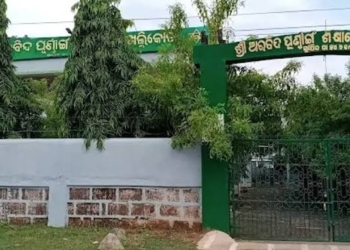Prime Minister Narendra Modi addressed the nation, outlining the success of Operation Sindoor, a military operation that delivered precision strikes on terrorist hideouts in Pakistan.
The operation was a direct response to the gruesome April 22 Pahalgam attack, in which innocent civilians were targeted by extremists.
Modi praised India’s armed forces for their strategic execution, eliminating over 100 terrorists, including key operatives responsible for decades of violence. He stated that terrorists who dared to attack India’s citizens have now met their fate.
Following India’s military offensive, Pakistan launched attacks on civilian areas and military installations, attempting to destabilise the region. However, India’s advanced air defence systems neutralised incoming threats, reinforcing the nation’s readiness for any future aggression.
Modi defined India’s three pillars of security:
- Decisive Retaliation – Any attack on Indian soil will be met with swift and targeted counteraction.
- No Tolerance for Nuclear Blackmail – Nuclear threats will not deter India’s firm stance against terrorism.
- Treating Terror Sponsors as Terrorists – Nations harbouring terrorists will be held equally accountable.
Within the first three days of India’s response, Pakistan suffered destruction far beyond its expectations. Following India’s aggressive countermeasures, Pakistan began seeking ways to de-escalate, appealing to the global community for relief from rising tensions. He revealed that, after suffering severe losses, Pakistan’s military reached out to India’s DGMO on the afternoon of May 10. By then, India had already dismantled large-scale terrorist infrastructure, eliminated key militants, and reduced Pakistan’s terror hubs to ruins.
Modi noted that Pakistan, in its appeal, assured that it would cease all terrorist activities and military aggression against India. In light of this statement, India reviewed the situation and decided to temporarily suspend its counter-operations against Pakistan’s terrorist and military installations. He reiterated that this suspension is not a conclusion—India will continue to assess Pakistan’s every move in the coming days, ensuring that its future actions align with its commitments.
The Prime Minister dismissed peace negotiations with Pakistan, stating that any future talks will focus solely on counter-terrorism and Pakistan-Occupied Kashmir (PoK). He reaffirmed India’s commitment to a zero-tolerance policy toward terrorism, ensuring the nation remains prepared for any threat.
As Operation Sindoor sets a new global precedent in counter-terrorism, Modi declared that India’s armed forces, intelligence agencies, and indigenous military advancements have cemented the country’s unwavering strength on the world stage.
Asserting that India has consistently defeated Pakistan on the battlefield, and Operation Sindoor has added a new dimension to the nation’s military prowess, Modi highlighted India’s remarkable capability in both desert and mountainous warfare while also establishing superiority in New Age Warfare. He emphasised that during the operation, the effectiveness of Made in India defence equipment was decisively proven. He remarked that the world is now witnessing the arrival of Made in India defence systems as a formidable force in 21st-century warfare.
Underscoring that unity is India’s greatest strength in the fight against all forms of terrorism, the Prime Minister reaffirmed that while this era is not one of war, it cannot be one of terrorism either. “Zero Tolerance against terrorism is the guarantee of a better and safer world”, he declared.
Modi asserted that Pakistan’s military and government have continuously nurtured terrorism, warning that such actions will eventually lead to Pakistan’s own downfall. He declared that if Pakistan seeks survival, it must dismantle its terror infrastructure—there is no other path to peace. He reaffirmed India’s firm stance, stating that terror and talks cannot coexist, terror and trade cannot run parallel, and blood and water cannot flow together.
On the occasion of Buddha Purnima, the Prime Minister reflected on Lord Buddha’s teachings, emphasising that the path to peace must be guided by strength. He underscored that humanity must progress towards peace and prosperity, ensuring that every Indian can live with dignity and realise the dream of a Viksit Bharat.
The Prime Minister asserted that for India to uphold peace, it must be strong, and when necessary, that strength must be exercised. He stated that recent events have demonstrated India’s resolve in safeguarding its principles. Concluding his address, he once again saluted the valour of the Indian armed forces and expressed his deep respect for the courage and unity of the people of India.






























